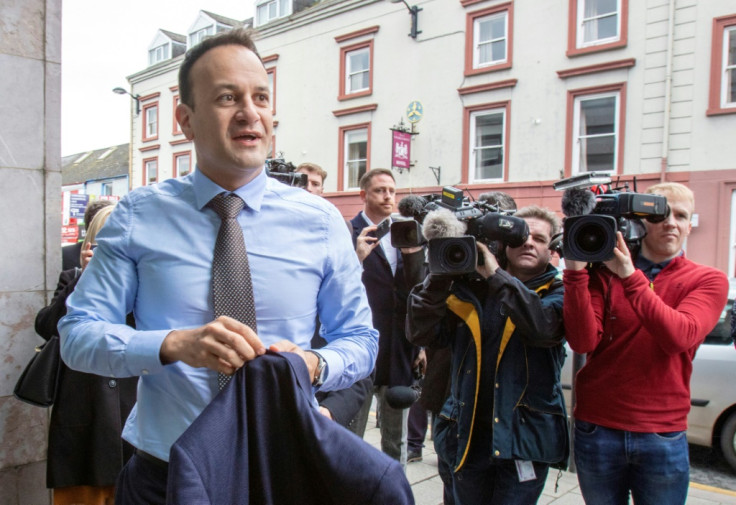Brexit trauma helps Ireland face COVID-19 crisis: PM
Forecasters suggested such a scenario would have caused huge economic damage and the likely emergence of a hard border with Northern Ireland.
Ireland's preparations for a potential no-deal Brexit have left the country better placed to face the coronavirus crisis, Prime Minister Leo Varadkar said Thursday.
"Because of the work our ministers did to ensure that we would be able to withstand the worst effects of a no-deal Brexit, we are now in a better position than if we were starting to think about some of these issues for the first time," he said.
Britain's 2016 vote to leave the EU caused unprecedented turmoil in Ireland and left it facing the prospect of a "no-deal" split between London and Brussels.
Forecasters suggested such a scenario would have caused huge economic damage and the likely emergence of a hard border with Northern Ireland.
That would have severed vital Irish supply routes and potentially reignited the sectarian conflict known as "The Troubles" which killed 3,500.
"The work spent thinking about supply lines, about the impact of a shock to the economy, the money we set aside through prudent management of our finances -- all of this is now being deployed against a different kind of national threat," Varadkar told the Dail, Ireland's lower house of parliament.

"We did not expect or predict a pandemic of this kind, but we were prepared for an economic crisis, and we are in a much stronger position today as a result."
A Brexit withdrawal deal was eventually secured and Britain left the EU on 31 January.
Varadkar said the period of no-deal drama seemed like "simpler times" compared to the COVID-19 crisis.
The Economic and Social Research Institute (ESRI) predicted Thursday that if government pandemic measures last 12 weeks, the Irish economy would slide into recession, shrinking 7.1 percent in 2020.
Over 350,000 could also lose their jobs and the government budget could slip from a surplus into a deficit of 4.3 percent of total economic output.
Schools and universities as well as vast swathes of non-essential businesses have been closed by government order, whilst gatherings and events have also been banned across Ireland until April 19.
There have been nine COVID-19 related deaths in Ireland and 1,564 confirmed cases.
Copyright AFP. All rights reserved.
This article is copyrighted by International Business Times, the business news leader





















